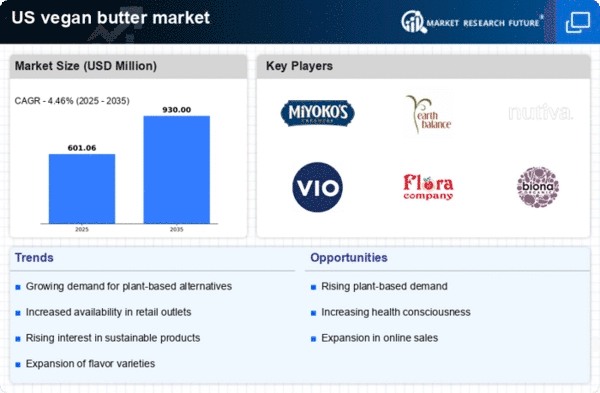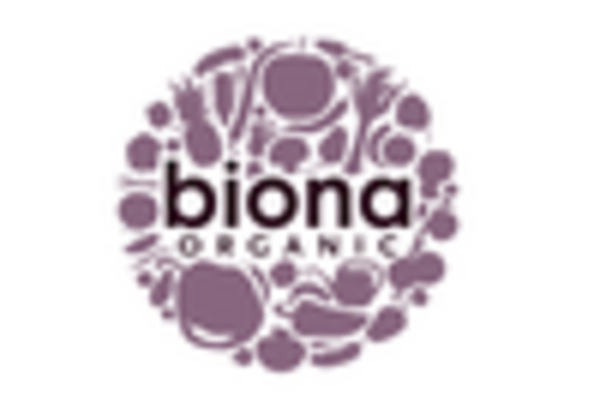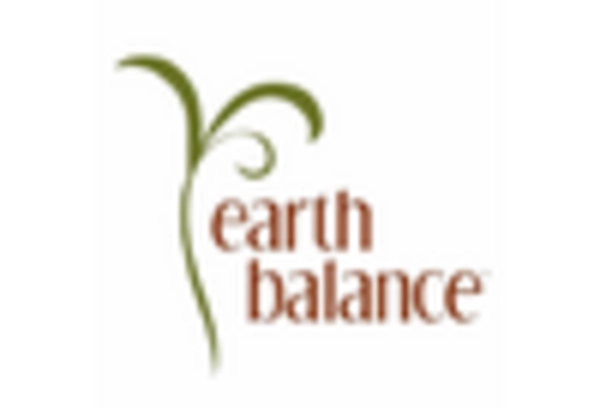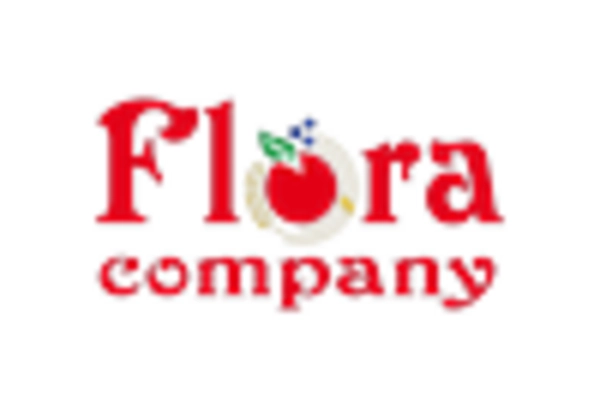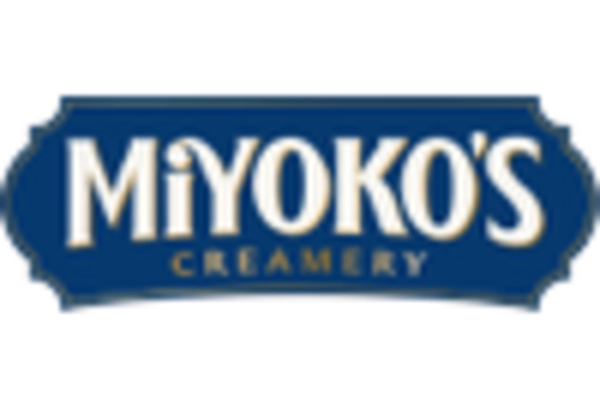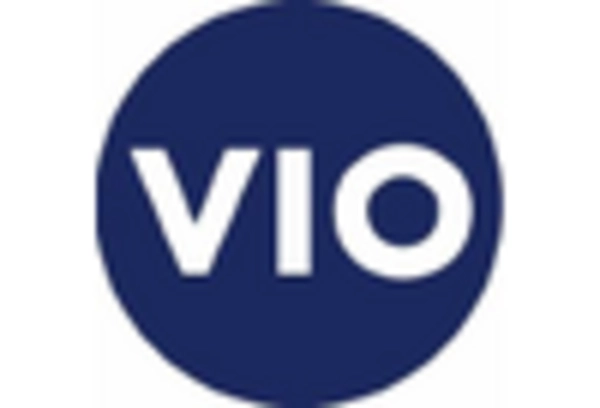Innovative Marketing Strategies
Innovative marketing strategies are playing a crucial role in the expansion of the vegan butter market. Brands are increasingly leveraging social media platforms and influencer partnerships to reach a broader audience. By showcasing the versatility and culinary applications of vegan butter, companies are effectively engaging consumers and driving interest. For instance, targeted campaigns that highlight recipes and cooking tips using vegan butter can enhance consumer perception and encourage trial. The vegan butter market is witnessing a shift in how products are marketed, with a focus on lifestyle branding that resonates with health-conscious and environmentally aware consumers. This approach not only boosts brand visibility but also fosters a community around plant-based living. As marketing efforts evolve, they are likely to contribute to the sustained growth of the vegan butter market.
Growing Interest in Culinary Versatility
The growing interest in culinary versatility is a notable driver for the vegan butter market. Consumers are increasingly experimenting with cooking and baking, seeking ingredients that can enhance their culinary creations. Vegan butter, with its ability to mimic the properties of traditional butter, is becoming a favored choice among home cooks and professional chefs alike. The vegan butter market is capitalizing on this trend by offering a variety of products that cater to diverse culinary needs, from baking to sautéing. This versatility not only appeals to vegans but also attracts non-vegans looking for healthier alternatives. As more recipes and cooking shows feature vegan butter, its popularity is likely to continue rising, further solidifying its place in the kitchen.
Increased Awareness of Lactose Intolerance
The rising awareness of lactose intolerance among consumers is significantly impacting the vegan butter market. In the US, it is estimated that approximately 65% of the adult population has some degree of lactose intolerance, leading many to seek dairy-free alternatives. This condition drives individuals to explore vegan butter as a suitable substitute for traditional butter, which contains lactose. The vegan butter market is thus positioned to cater to this demographic, providing products that not only meet dietary restrictions but also offer similar taste and texture to conventional butter. As educational campaigns about lactose intolerance proliferate, more consumers are likely to make informed choices, further propelling the demand for vegan butter. This trend indicates a potential for sustained growth in the market, as lactose-free options become increasingly mainstream.
Rising Demand for Plant-Based Alternatives
The increasing consumer preference for plant-based diets is a primary driver in the vegan butter market. As more individuals adopt vegan or flexitarian lifestyles, the demand for plant-based alternatives to traditional dairy products rises. According to recent data, the plant-based food market in the US is projected to reach $74 billion by 2027, indicating a robust growth trajectory. This shift is not merely a trend but reflects a broader societal change towards healthier eating habits. The vegan butter market is benefiting from this transition, as consumers seek options that align with their dietary choices. Furthermore, the availability of diverse flavors and formulations in vegan butter products enhances their appeal, making them a staple in many households. This growing acceptance of plant-based alternatives suggests a promising future for the vegan butter market, as it continues to capture the interest of health-conscious consumers.
Regulatory Support for Plant-Based Products
Regulatory support for plant-based products is emerging as a significant driver for the vegan butter market. The US government has been increasingly supportive of initiatives that promote plant-based diets, recognizing their potential health benefits and environmental advantages. Policies that encourage the production and consumption of plant-based foods can create a favorable environment for the vegan butter market. For example, subsidies for plant-based agriculture and educational programs about the benefits of reducing dairy consumption can enhance market growth. This regulatory landscape not only supports existing brands but also encourages new entrants to explore opportunities within the vegan butter segment. As such, the alignment of government policies with consumer trends may lead to a more robust market for vegan butter in the coming years.


